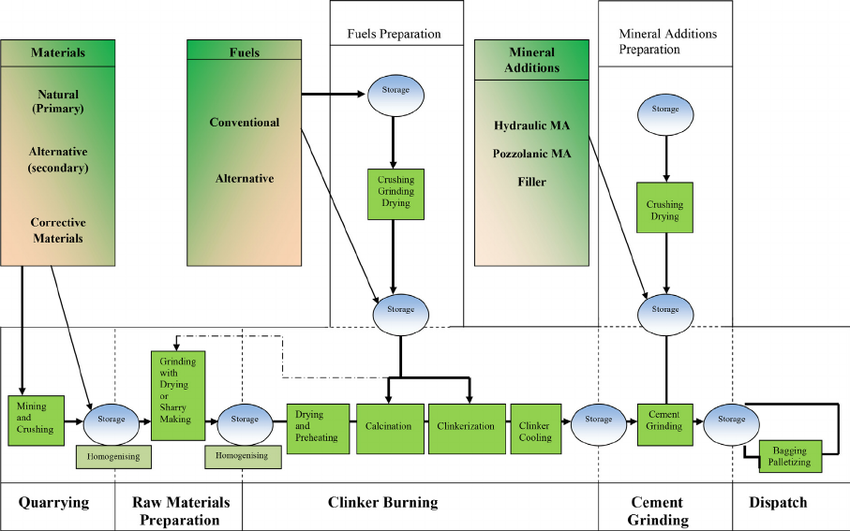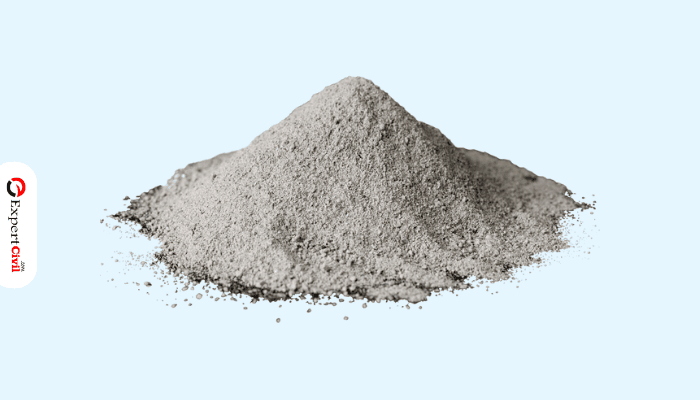What is Hydrophobic Cement?
As the name indicates, Hydrophobic Cement, hydro means water and phobic means against, this cement tends not to dissolve in or mix with or be wetted by water. It has an additive which repels water. This cement does not absorb moisture. Also, this special type of cement is very expensive. Its manufacturing cast is very high.

As this cement performs activities which repel water and do not mix with water and not wetted by water and does not absorb water, due to such activities it is known as Hydrophobic Cement.
Manufacturing of Hydrophobic Cement
It is manufactured on special requirements for high rainfall areas to improve the shelf life of the cement.
The process of manufacturing this special cement is the same as Portland cement. The clinkers formed during the construction of the cement are grinded with water-repellent substances such as Oleic acid. These chemicals form a layer of cement which does not allow water to mix with it.

The cement particles are given a chemical coating during manufacturing which provides water-splitting properties. The cement is not affected due to huge humidity and cement can be stored for the long period.
Properties of Hydrophobic Cement
| Properties | Values |
| Fineness | 350m³/Kg |
| Soundness:
Lechetelier |
10 mm |
| Autoclave | 0.8% |
| Setting time:
Initial setting time Final setting time |
30 minutes 600 minutes |
| Compressive strength:
3 days 7 days 28 days |
16 MPa 22 Mpa 30 MPa |
| Water absorption | 0.3 – 1% |
Also Read: Complete Guide on Consistency of cement
Uses of Hydrophobic Cement
Major applications of hydrophobic cement are as follows:
- It is used in an extremely wet climate
- It is used in underwater construction
- It can store for the long time period
- It is mostly used in tunnel construction
- It can be used on structures which are exposed to rain such as roofs, parking structures, etc.
- It can be used in drainage system works and also in the construction of manholes.
- It is used in water treatment plants, dams and retaining walls, etc.
- It can fix leaky pipes, floors, basements, etc. without having to stop the leaking
- This is specially prepared cement which does not tend to dissolve in water and is used in many construction projects
- This cement does not absorb water
- It gives the required strength to the structure and makes a durable structure
- It is mostly used in underwater and underground construction
- When there is a need for fast construction this special type of cement is used.
Advantages of Hydrophobic Cement
The major advantages of Hydrophobic Cement are as follows:
- This special type of cement provides durable repairs that will last for a long period of time
- This cement has the same strength as that of the ordinary cement
- This cement sets and hardens fast as compared to ordinary cement
- As its setting time is very fast it can be painted within an hour of being it is applied.
- It can be stored for a long time
- It makes the construction fast and advanced
- Underwater construction can be done with this cement
- This cement is mostly used in underwater and underground construction
- This cement hardens at a very fast rate so that used in construction which has to be completed fast
- This cement is taking the construction to the advanced level
- With advancements in construction, the demand for such cement is on increasing.
Disadvantages of Hydrophobic Cement
Some of the disadvantages of hydrophobic cement are as follows:
- This cement does not work on the frozen surface
- This cement solves the problems due to leakage but is not able to solve the problems due to condensation
- This special cement can not be used below the temperature of 40°F or 4°C
- This cement needs skilled labour for its application
- This cement also needs a favorable climatic condition during its application to the project
- This cement has to be prepared on special order from the cement manufacturer
- The cost of this cement is very high.
- Due to its high demand, its manufacturing cost is very high
- This cement is not useful in snowy areas
- Labor used for the construction should be properly skilled and known of this cement as this cement contains chemicals within it as compared to ordinary cement
- Problems due to the process of condensation can not be solved with this cement.
Health and Safety precautions of the Hydrophobic Cement
While using this hydrophobic cement some important precautions that must be considered are as follows:
- Cover your hands and face properly such that there should be no contact of the hydrophobic cement with your skin and eyes.
- Silica inhaling may cause many problems to the lungs such that covering the nose and mouth properly.
- The use of protective clothes i.e. face masks, gloves, full sleeves shirts, boots, helmets, long pants, etc. is highly recommended.

Also Read: Low Heat cement


[…] Also read: Hydrophobic cement […]